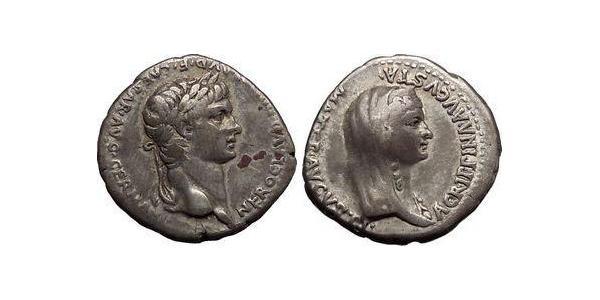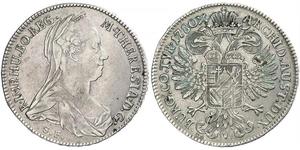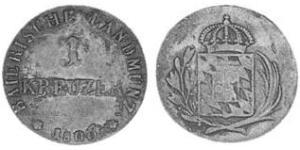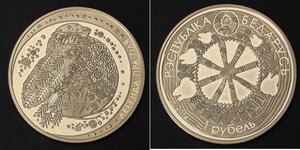[ 5877] Nero - Roman Emperor: 54-68 A.D. - Nero with Agrippina Junior (died A.D. 58) Silver Didrachm (22mm, 7.50 gr.) Caesarea-Eusebia, 54-68 A.D. Reference: RPC 3633. RIC 608. ΝΕΡΩΝΟΣ ΚΛΑΥΔΙΟΥ ΚΑΙΣΑΡΟΣ ΣΕΒ, Laureate head of Nero right. Veiled bust of Agrippina junior right, wearing stephane. Provided with certificate of authenticity. CERTIFIED AUTHENTIC by Sergey Nechayev, PhD - Numismatic Expert Julia Agrippina, most commonly referred to as Agrippina Minor or Agrippina the Younger or Agrippinilla (Little Agrippina) and after 50 known as Julia Augusta Agrippina (Minor Latin for the ‘younger’, Classical Latin: IVLIA•AGRIPPINA; IVLIA•AVGVSTA•AGRIPPINA, 7 November 15 or 6 November 16 – 19/23 March 59) was a Roman Empress and one of the more prominent women in the Julio-Claudian dynasty. She was a great-granddaughter of the Emperor Augustus, great-niece and adoptive granddaughter of the Emperor Tiberius, sister of the Emperor Caligula, niece and fourth wife of the Emperor Claudius, and mother of the Emperor Nero. Agrippina the Younger has been described by both the ancient and modern sources as ‘ruthless, ambitious, violent and domineering’. She was a beautiful and reputable woman and according to Pliny the Elder, she had a double canine in her upper right jaw, a sign of good fortune. Many ancient historians accuse Agrippina of poisoning Emperor Claudius, though accounts vary. Nero Claudius Caesar Augustus Germanicus (15 December AD 37–9 June AD 68), born Lucius Domitius Ahenobarbus, also called Nero Claudius Caesar Drusus Germanicus, was the fifth and last Roman emperor of the Julio-Claudian dynasty. Nero was adopted by his great uncle Claudius to become heir to the throne. As Nero Claudius Caesar Augustus Germanicus, he succeeded to the throne on 13 October 54, following Claudius's death. Nero ruled from 54 to 68, focusing much of his attention on diplomacy, trade, and increasing the cultural capital of the empire. He ordered the building of theaters and promoted athletic games. His reign included a successful war and negotiated peace with the Parthian Empire (58–63), the suppression of the British revolt (60–61) and improving relations with Greece. The First Roman-Jewish War (66–70) started during his reign. In 68 a military coup drove Nero from the throne. Facing assassination, he committed suicide on 9 June 68. Nero's rule is often associated with tyranny and extravagance. He is known for a number of executions, including those of his mother and step-brother, as the emperor who "fiddled while Rome burned", and as an early persecutor of Christians. This view is based upon the main surviving sources for Nero's reign—Tacitus, Suetonius and Cassius Dio. Few surviving sources paint Nero in a favorable light. Some sources, though, including those mentioned above, portray him as an emperor who was popular with the common Roman people, especially in the East. The study of Nero is problematic as some modern historians question the reliability of ancient sources when reporting on Nero's tyrannical acts. Nero was born with the name Lucius Domitius Ahenobarbus on 15 December, AD 37, in Antium, near Rome. He was the only son of 12, by Gnaeus Domitius Ahenobarbus and second and third cousin Agrippina the Younger, sister of emperor Caligula. Lucius' father was the grandson of Gnaeus Domitius Ahenobarbus and Aemilia Lepida through their son Lucius Domitius Ahenobarbus. Gnaeus was a grandson to Mark Antony and Octavia Minor through their daughters Antonia Major and Antonia Minor, by each parent. With Octavia, he was the grandnephew of Caesar Augustus. Nero's father had been employed as a praetor and was a member of Caligula's staff when the latter traveled to the East. Nero's father was described by Suetonius as a murderer and a cheat who was charged by emperor Tiberius with treason, adultery, and incest. Tiberius died, allowing him to escape these charges. Nero's father died of edema (or "dropsy") in ...
type to read more

|
Posted by:
anonymous 2015-08-18 |
Similar Coin Groups
2025-06-11
- Live Coin Catalog's improvements / coins uploading
9 coins were uploaded from 2025-06-04 to 2025-06-11
One of them is:
2025-05-30
-
New coins
New coins from
Save seller - sloveniacoins
.
One of them is
One of them is
BELARUS 1 Rouble 2014 Proofike - Copper/Nickel - Legend of the Bullfinch - 2699
You may be interested in ...





















